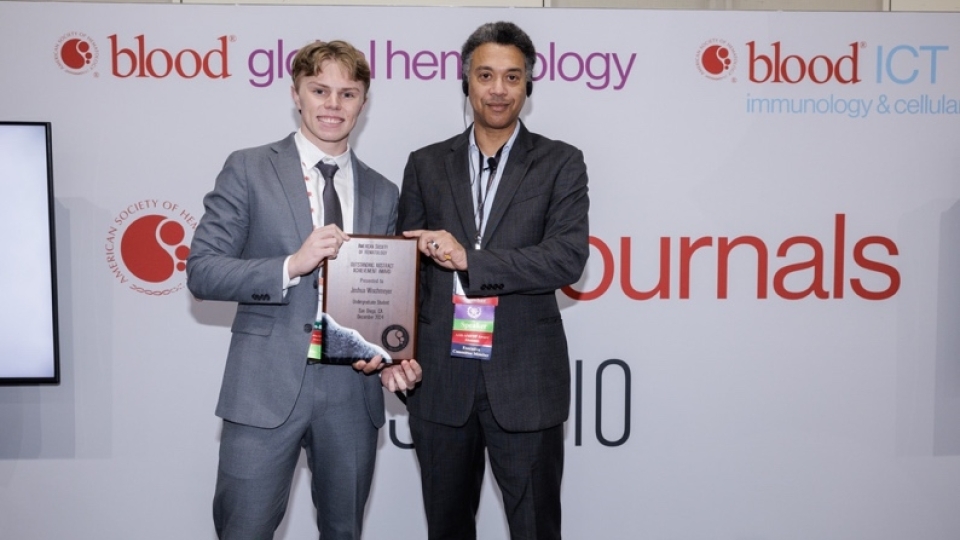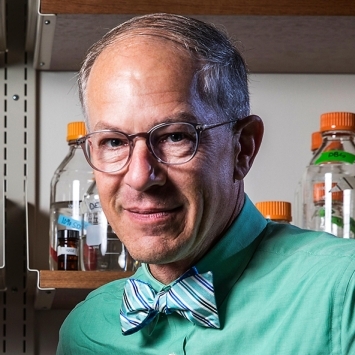Bio Major’s Research Points the Way to New Hemophilia Treatment
August 14, 2025
- Author
- Jay Pfeifer

The discovery of a mutated protein that increases blood clotting could pave the way for new treatments for hemophilia, a condition that causes excessive bleeding because of lack of clotting factors in blood.
Davidson College biology major Joshua Wischmeyer ’27, along with colleagues at the University of Colorado Anschutz Medical Campus, identified the mutation as they studied a young male subject whose blood was uniquely predisposed to clotting.
Wischmeyer, a Colorado native and intern at the medical campus, is first author on an article about the work in the New England Journal of Medicine (NEJM) — an accomplishment many lifelong researchers consider a career milestone.

Getting published in the NEJM is a huge deal for anyone. It’s widely regarded as one of the top biomedical journals in the world. For an undergraduate to be the lead author on a NEJM article really is incredible.
Last year, this research earned Wischmeyer recognition from the American Society of Hematology. He won the ASH Outstanding Abstract Achievement Award, which is given to the first author of the highest-graded abstract in the undergraduate category.
“Several factors make Joshua a strong student researcher,” Wessner said. “He’s smart. But probably more important, he’s really good at thinking about data and critically evaluating it. He asks the small but important questions. He can see the existing holes and think about ways to fill those holes.”
Hematology has been an unexpected detour for Wischmeyer, who hopes to attend medical school after he graduates.
“It’s a huge field and I've really come to enjoy learning more,” he said. Wischmeyer plans to continue his research over the remainder of his time at Davidson.



